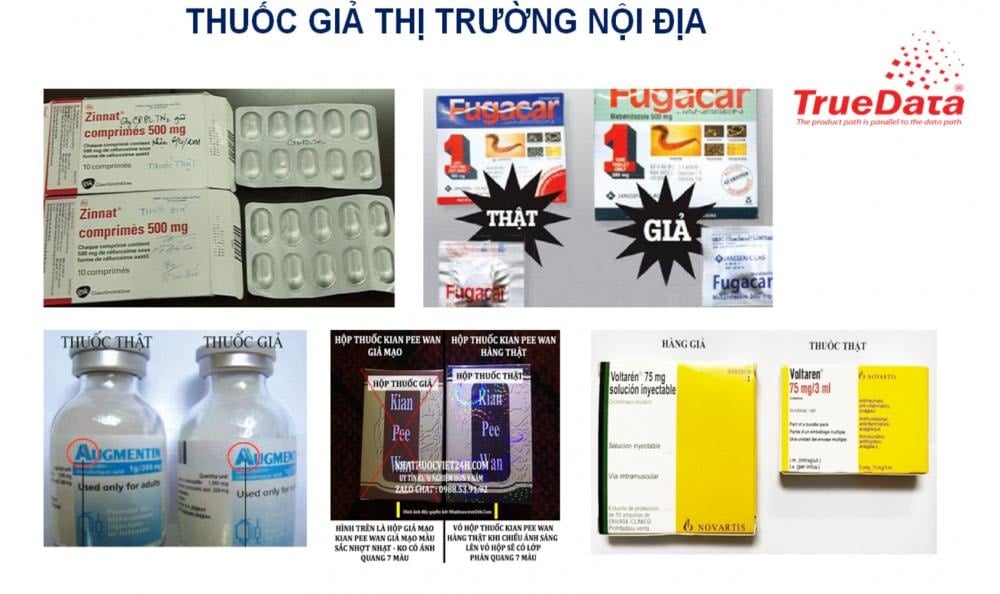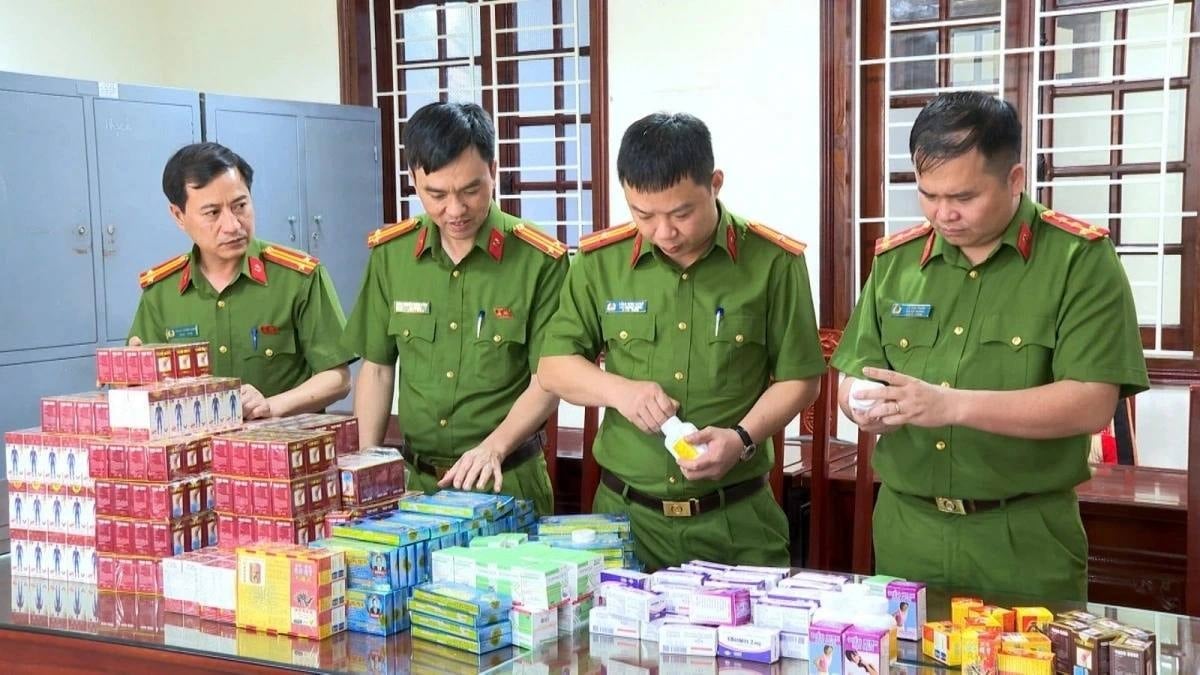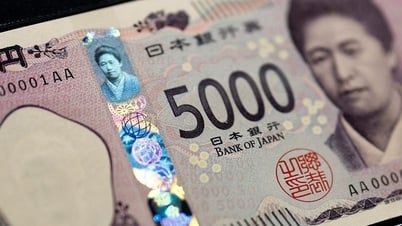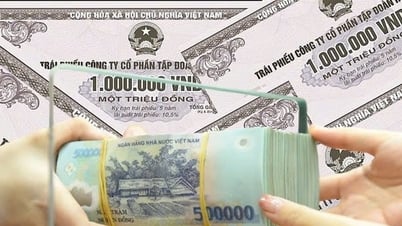The dark side of "fake medicine"
The pharmaceutical industry is witnessing a strong rise in both scale and depth of development. According to data from Statista, the global pharmaceutical market reached about 1,500 billion USD in 2023 and is expected to continue to grow in the next decade thanks to the increasing demand for healthcare and the explosion of biomedical technology.
In Vietnam, the pharmaceutical industry is no exception to this trend. With an average growth rate of 10-12% per year, the industry is expected to reach a value of about 16 billion USD by 2026 – making Vietnam one of the fastest growing markets in Southeast Asia.
Currently, the country has about 238 factories meeting GMP-WHO standards, meeting nearly 70% of domestic demand. The distribution system has also expanded strongly with more than 5,000 wholesale establishments and about 65,000 pharmacies and retail drugstores across the provinces.
Not only traditional "giants" such as Traphaco, Imexpharm, DHG, Domesco, or Bidiphar are stepping up investment in production technology and quality management, but there is also the participation of "new players" such as Vingroup, Masan Group, FPT Retail, contributing to creating fierce competition, promoting the domestic pharmaceutical market to shift from the old model to a modern, multi-layered ecosystem, closely linked from research, production, distribution to export.
Despite its huge growth potential and investment attractiveness, the pharmaceutical industry is still facing serious challenges from counterfeit drugs and substandard products.
In the context of a volatile economy , pharmaceutical stocks are increasingly considered a “safe haven” for investment capital thanks to their stability and constant consumer demand. Enterprises with effective mergers and acquisitions (M&A) strategies, extensive distribution networks and export potential are often in the “sights” of domestic and foreign investment funds.
At the same time, startups in the fields of healthtech , artificial intelligence (AI), and drug traceability blockchain are also becoming the "promised land" of venture capital.
However, behind that bright picture is a painful dark corner called "counterfeit drugs" and poor quality drugs - a problem that directly threatens public health, erodes trust in the healthcare system and damages the image of the Vietnamese pharmaceutical industry in the international arena.
According to the Ministry of Health's report in 2024, out of a total of 43,197 samples of drugs, medicinal herbs and cosmetics tested, 228 samples failed to meet quality standards, accounting for 0.53%. In particular, the group of traditional medicinal herbs violated up to 3.04%, cosmetics 1.5% and oriental medicine 0.4% - not large numbers but a clear warning about the "loopholes" in quality control, especially when these products are associated with treatment, beauty and long-term health care.
Although the Ministry of Health has carried out hundreds of inspections and imposed administrative fines totaling more than VND2.5 billion, experts say that the inspection and supervision work has not kept up with the scale and speed of market development.
Partly due to the lack of specialized human resources, modern testing equipment, and limited legal capacity in handling cross-border violations - especially in the e-commerce environment, where counterfeit drugs and cosmetics can easily slip through online platforms and social networks.
Unstandardized segments such as oriental medicine, natural medicinal herbs, handmade cosmetics... are becoming "lowlands" in the effort to standardize and upgrade the Vietnamese pharmaceutical industry. The confusion between traditional and modern products, between exaggerated advertising and actual effectiveness is causing many consumers to fall into a "matrix of trust".
To overcome this situation, many experts believe that a national strategy is needed to prevent counterfeit drugs, including increasing investment in testing systems, applying blockchain technology in traceability, establishing an early warning mechanism, and enhancing the role of post-inspection.
At the same time, the media, press, celebrities and industry associations also need to actively participate in raising public awareness, forming a "soft defense barrier" from the community against counterfeit and poor quality drugs.
Only when the light of transparency and standardization covers the entire industry, the "dark corner" called counterfeit drugs will be truly erased - so that the pharmaceutical industry can not only develop in quantity but also be stable in quality, for a future of safe, effective and sustainable healthcare for Vietnamese people.
Not a game of “hit fast, win fast”
Although considered a potential sector, the pharmaceutical industry is not for short-term investors. With high research and development (R&D) costs, long time to market, strict legal regulations and fierce competition from multinational pharmaceutical corporations, this is a real “long-distance race”.
Not to mention, the trend of tightening health insurance policies and controlling drug prices in many countries is increasingly narrowing the profit margins of businesses in the industry.
Therefore, a systematic investment strategy needs to start with carefully selecting businesses with stable financial foundations, effective distribution systems, standard products and technological innovation capabilities.
In particular, companies with a long-term development orientation through digitalization, promoting international research and cooperation, and committing to business ethics will hold many competitive advantages on the road ahead.
Thanh Hoa Provincial Police's Economic Police Department dismantled a large-scale counterfeit pharmaceutical production and trafficking ring in April 2025 (police photo).
In addition, choosing to invest in specialized ETFs or stocks of large pharmaceutical corporations in the world is also a safe direction, bringing sustainable profit potential - especially in the context of the global priority being placed on the medical and healthcare sector.
In this billion-dollar race, Mr. Nguyen Quang Thai - Chairman of the Board of Directors of Thai Minh Pharmaceutical Joint Stock Company - commented that only enterprises with "real quality" can go the long way. Owning a GMP-WHO standard factory, a transparent traceability system, high-quality management capacity and the ability to apply modern technology - from artificial intelligence (AI), biotechnology to blockchain - is the "passport" for Vietnamese pharmaceutical enterprises to reach the international market.
Faced with the widespread situation of counterfeit drugs, Mr. Phan Van Hieu - Chairman of CVI Pharmaceutical Company - said that domestic pharmaceutical enterprises are proactively implementing many solutions to protect consumer rights and maintain brand reputation. One of the important steps is to increase investment in product traceability technology through barcodes, QR codes, and blockchain to verify authenticity.
At the same time, businesses also strengthen quality control activities at factories and distribution channels; at the same time, closely coordinate with authorities to detect and strictly handle acts of producing and trading counterfeit drugs.
In addition to technical solutions, raising consumer awareness of genuine products and ensuring quality is also a sustainable strategy to build trust and minimize risks in the pharmaceutical market.
Source: https://baodaknong.vn/thuoc-gia-la-rao-can-lam-giam-tang-truong-cua-nganh-duoc-viet-nam-dang-252989.html




![[Photo] President Luong Cuong presents the 40-year Party membership badge to Chief of the Office of the President Le Khanh Hai](https://vphoto.vietnam.vn/thumb/1200x675/vietnam/resource/IMAGE/2025/5/19/a22bc55dd7bf4a2ab7e3958d32282c15)
![[Photo] Close-up of Tang Long Bridge, Thu Duc City after repairing rutting](https://vphoto.vietnam.vn/thumb/1200x675/vietnam/resource/IMAGE/2025/5/19/086736d9d11f43198f5bd8d78df9bd41)
![[Photo] Panorama of the Opening Ceremony of the 43rd Nhan Dan Newspaper National Table Tennis Championship](https://vphoto.vietnam.vn/thumb/1200x675/vietnam/resource/IMAGE/2025/5/19/5e22950340b941309280448198bcf1d9)

![[Photo] General Secretary To Lam attends the conference to review 10 years of implementing Directive No. 05 of the Politburo and evaluate the results of implementing Regulation No. 09 of the Central Public Security Party Committee.](https://vphoto.vietnam.vn/thumb/1200x675/vietnam/resource/IMAGE/2025/5/19/2f44458c655a4403acd7929dbbfa5039)















































































![[VIDEO] - Enhancing the value of Quang Nam OCOP products through trade connections](https://vphoto.vietnam.vn/thumb/402x226/vietnam/resource/IMAGE/2025/5/17/5be5b5fff1f14914986fad159097a677)


Comment (0)